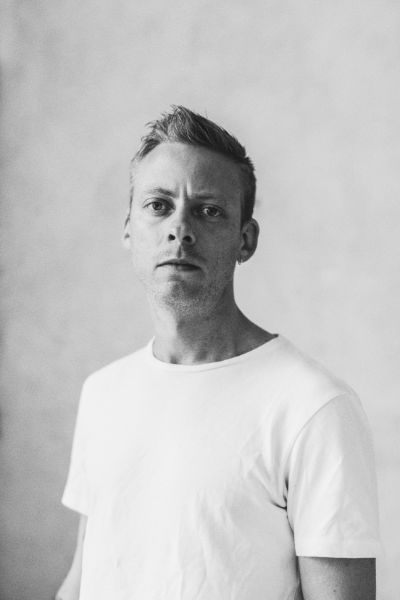Theis Ørntoft

»The private is not political. The private is planetary«
Theis Ørntoft (* 1984) is a Danish poet, author and musician, and, together with his colleague Lars Skinnebach, he runs the band Klimakrisen (The Climate Crisis). In 2009, Ørntoft made his writerly debut with the poetry collection "Yeahsuiten". Since publishing his second poetry collection "Gedichte 2014" (Poems 2014), he has been considered an eco-poet. In his later novel "Solar" (2018), he further develops the capitalism-critical, apocalyptic mood established in "Gedichte 2014".
»The first known form of life on Earth was the blue-green alga. They are thought to have come into existence within the primordial soup 3.8 billion years ago, approximately one billion years after the planet was created. The blue-green algae were single-celled organisms, primitive in every way. They were not able to do much. In biological terms, they were mere bacteria. But blind and unaware, they introduced something essential for life on the planet: they invented photosynthesis. They harvested the light of the sun and released oxygen into the atmosphere. Into the atmosphere, billions of tons over millions of years. And so, the blue-green algae established the conditions of possibility for life on the planet. Unfortunately, oxygen turned out to be toxic to these algae. They were unable to survive the atmospheric conditions they themselves had created, and their species nearly went extinct during the historical period geologists refer to as The Great Oxidation Event, the first mass extinction in the history of the planet.«
Theis Ørntoft's novel "Solar" tells of a dystopian road trip that becomes darker and more surreal as it develops. The beginning depicts a young eco-poet named Theis wandering rural Denmark in classic nature-writing style, who ends up losing himself in a violent computer game and eventually getting wrapped up in a double murder. While the first-person narrator makes poetic, critical and thoroughly rational observations – about Denmark and the world, nature and the cosmos, the individual and society, all of humanity and the planet – his situation becomes increasingly hopeless as the narrative progresses. Even so, he keeps the big picture in mind: "the private is not political. The private is planetary". The cracks in the Earth run deep, though, and in the end, it seems that neither eco-poet nor mankind can find a way back to an intact world.